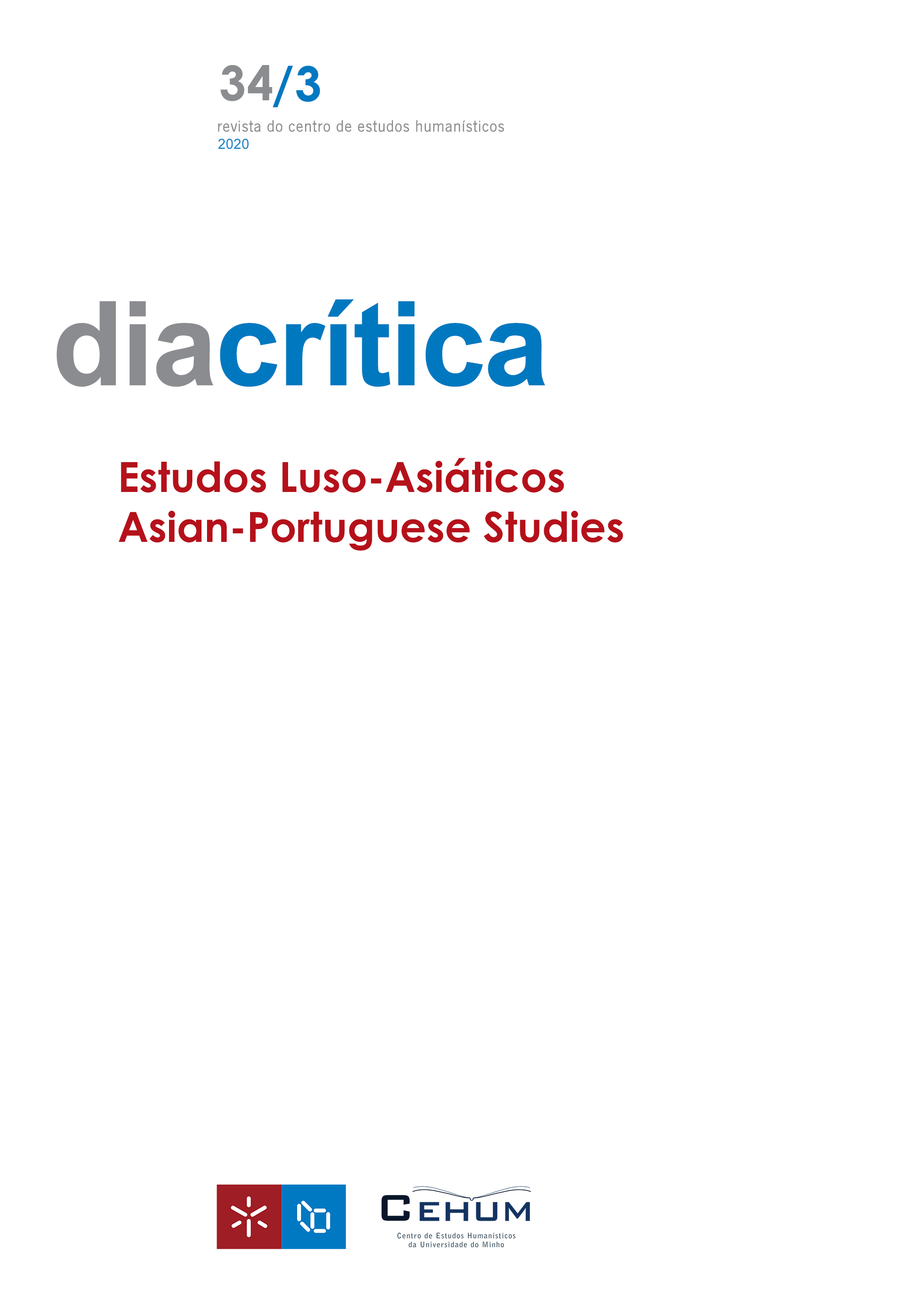¡Ay, maricón! Analisando a tradução de tabus linguísticos na legendagem de La Mala Educación para o Português Brasileiro Um estudo comparativo entre legendas oficiais e fansubbing
DOI:
https://doi.org/10.21814/diacritica.5011Palavras-chave:
Tradução Audiovisual, Legendagem, Fansubbing, Pedro Almodóvar, Tabus Linguísticos, Português-EspanholResumo
Considerando o avanço das pesquisas nos Estudos da Tradução Audiovisual nas últimas décadas, o presente trabalho objetivou vislumbrar se a tradução-da-letra (Berman 2013), proposta inicialmente para os estudos de tradução literária, pode ser considerada como uma metodologia para pesquisas em legendagem. Utilizamos as formas clássicas de tradução literária, etnocêntrica e hipertextual, e as tendências deformadoras da tradução para analisar um corpus composto pelas palavras e expressões-tabu relativas à injúria, encontradas nas legendas oficiais e nas legendas feitas por fansubbing, em português brasileiro, do filme espanhol La Mala Educación [Má Educação], de Pedro Almodóvar. Constatamos que a partir das análises das tendências deformadoras utilizadas, tanto nas legendas oficiais, quanto nas legendas do fansubbing, as palavras e expressões-tabu foram, em sua maioria, traduzidas de modo a não amenizar seu sentido, o que pôde ser explicado pelo fato de os legendadores terem realizado traduções mais voltadas para o etnocêntrico, prezando pelo significado que as legendas deveriam propiciar ao público que assiste ao filme. Concluímos que a teoria bermaniana pode ser utilizada como uma metodologia para a análise de legendas, desde que feitas algumas alterações, tendo em vista as características intrínsecas à legendagem.
Referências
Almodóvar, A. (Productor), & Almodóvar, P. (Director). (2004). La mala educación. [Filme]. Espanha: El Deseo.
Arango, A. C. (1991). Os palavrões (Jasper Lopes Bastos, Trad.). São Paulo: Editora Brasiliense.
Berman, A. (2013). A tradução e a letra ou o albergue do longínquo (M-H. C. Torres, M. Furlan & A. Guerini, Trads.). Florianópolis: Copiart, PGET/UFSC.
Díaz Cintas, J. (2005). El subtitulado y los avances tecnológicos. In R. Merino, J. M. Santamaría & E. Pajares (Eds.) Literatura, Cine y Traducción. (Vol. 4, pp. 155–175). Gipuzkoa: UPV/EHU.
Díaz Cintas, J. (2010). Subtitling. In Y. Gambier & L. Van Doorslaer (Ed.), Handbook of Translation Studies. (Vol. 1, pp. 344–349). Amsterdam: John Benjamins.
Díaz Cintas, J., & Muñoz Sánchez, P. (2006). Fansubs: Audiovisual translation in an amateur environment. JoSTrans, The Journal of Specialised Translation, 6, 37–52. Consultado em www.jostrans.org/issue06/art_diaz_munoz.pdf
Diccionario de la Lengua Española. (2019). Consultado em https://dle.rae.es/?w=diccionario
Georgakopoulou, P. (2009). Subtitling for the DVD industry. In J. Díaz Cintas & G. Anderman (Eds.), Audiovisual translation. Language transfer on screen (pp. 21–35). Basingstoke: Palgrave Macmillan. https://doi.org/10.1057/9780230234581_2
Injúria. (s.d.). In Dicionário Priberam da Língua Portuguesa (2008–2013). Consultado em julho de 2019 em https://dicionario.priberam.org/injúria
Kovačič, I. (1991). Subtitling and contemporary linguistic theories. In: M. Jovanovič (Ed.) Translation, A Creative Profession: Proceedings XIIth World Congress of FIT — Belgrade 1990 (pp. 407–17). Belgrado: Prevodilac.
Moura, W. H. C. (2020). A tradução de tabus linguísticos morais na legendagem e na dublagem do filme Todo sobre mi madre, de Pedro Almodóvar. (Dissertação de Mestrado em Estudos da Tradução, Universidade Federal de Santa Catarina, Florianópolis, Brasil).
Orrego Carmona, D. (2013). Avance de la traducción audiovisual: desde los inicios hasta la era digital. Mutatis Mutandis, 6(2), 297–320.
Orrego Carmona, D. (2016). A reception study on non-professional subtitling. Do audiences notice any difference?. Across Languages and Cultures, 17 (2), 163–181. http://doi.org/ 10.1556/084.2016.17.2.2
Preti, D. (1984). A linguagem proibida:Uum estudo sobre a linguagem erótica. São Paulo: T.A. Queiroz, Editor.
Silva, T. B. (2016). A legendagem em filmes do espanhol para o português brasileiro: técnicas tradutórias aplicadas às expressões-tabu. (Dissertação de Mestrado em Letras, Universidade Federal do Rio Grande do Sul, Porto Alegre, Brasil).
WordReference. (s.d.). Consultado em http://www.wordreference.com/
Downloads
Publicado
Como Citar
Edição
Secção
Licença
Direitos de Autor (c) 2023 William Henrique Cândido Moura

Este trabalho encontra-se publicado com a Creative Commons Atribuição-NãoComercial 4.0.










